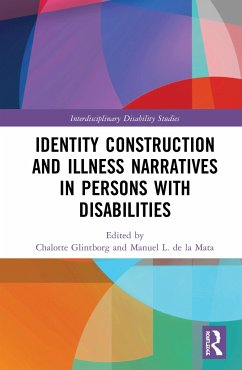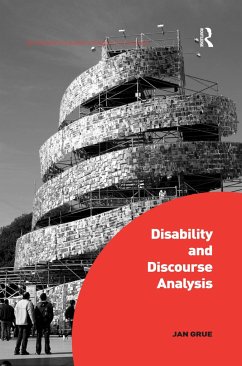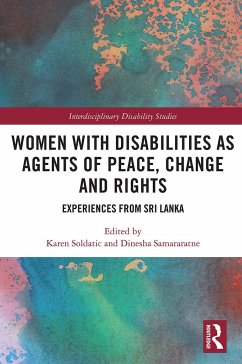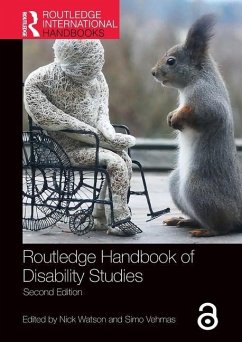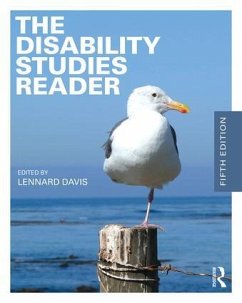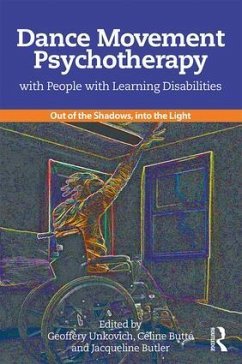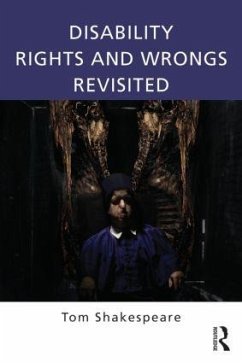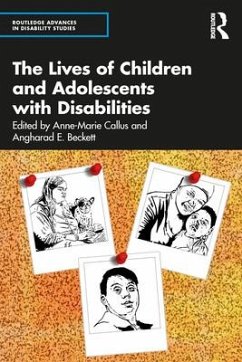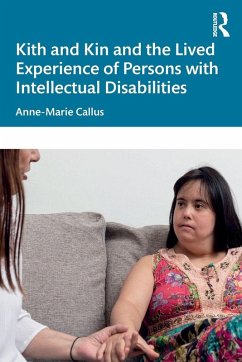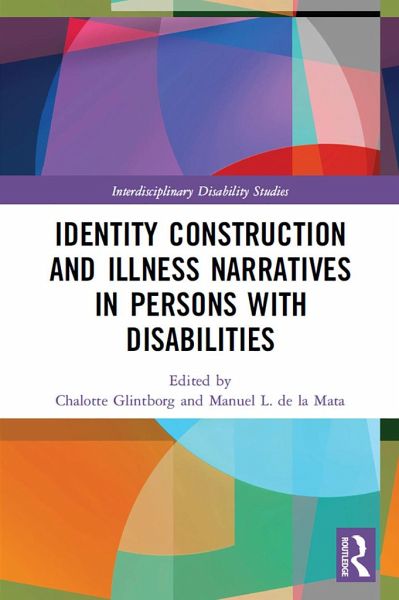
Identity Construction and Illness Narratives in Persons with Disabilities
Versandkostenfrei!
Versandfertig in 6-10 Tagen
43,99 €
inkl. MwSt.
Weitere Ausgaben:

PAYBACK Punkte
22 °P sammeln!
This book investigates how being diagnosed with various disabilities impacts on identity. Once diagnosed with a disability, there is a risk that this label can become the primary status both for the person diagnosed as well as for their family. This reification of the diagnosis can be oppressive because it subjugates humanity in such a way that everything a person does can be interpreted as linked to their disability.Drawing on narrative approaches to identity in psychology and social sciences, the bio-psycho-social model and a holistic approach to disabilities, the chapters in this book under...
This book investigates how being diagnosed with various disabilities impacts on identity. Once diagnosed with a disability, there is a risk that this label can become the primary status both for the person diagnosed as well as for their family. This reification of the diagnosis can be oppressive because it subjugates humanity in such a way that everything a person does can be interpreted as linked to their disability.
Drawing on narrative approaches to identity in psychology and social sciences, the bio-psycho-social model and a holistic approach to disabilities, the chapters in this book understand disability as constructed in discourse, as negotiated among speaking subjects in social contexts, and as emergent. By doing so, they amplify voices that may have otherwise remained silent and use storytelling as a way of communicating the participants' realities to provide a more in-depth understanding of their point of view.
This book will be of interest to all scholars and students of disability studies, sociology, medical humanities, disability research methods, narrative theory, and rehabilitation studies.
Drawing on narrative approaches to identity in psychology and social sciences, the bio-psycho-social model and a holistic approach to disabilities, the chapters in this book understand disability as constructed in discourse, as negotiated among speaking subjects in social contexts, and as emergent. By doing so, they amplify voices that may have otherwise remained silent and use storytelling as a way of communicating the participants' realities to provide a more in-depth understanding of their point of view.
This book will be of interest to all scholars and students of disability studies, sociology, medical humanities, disability research methods, narrative theory, and rehabilitation studies.





